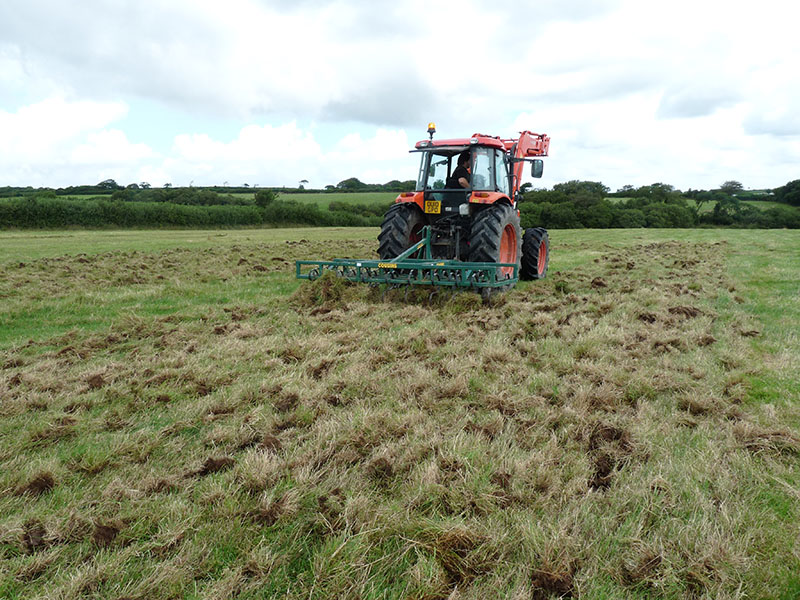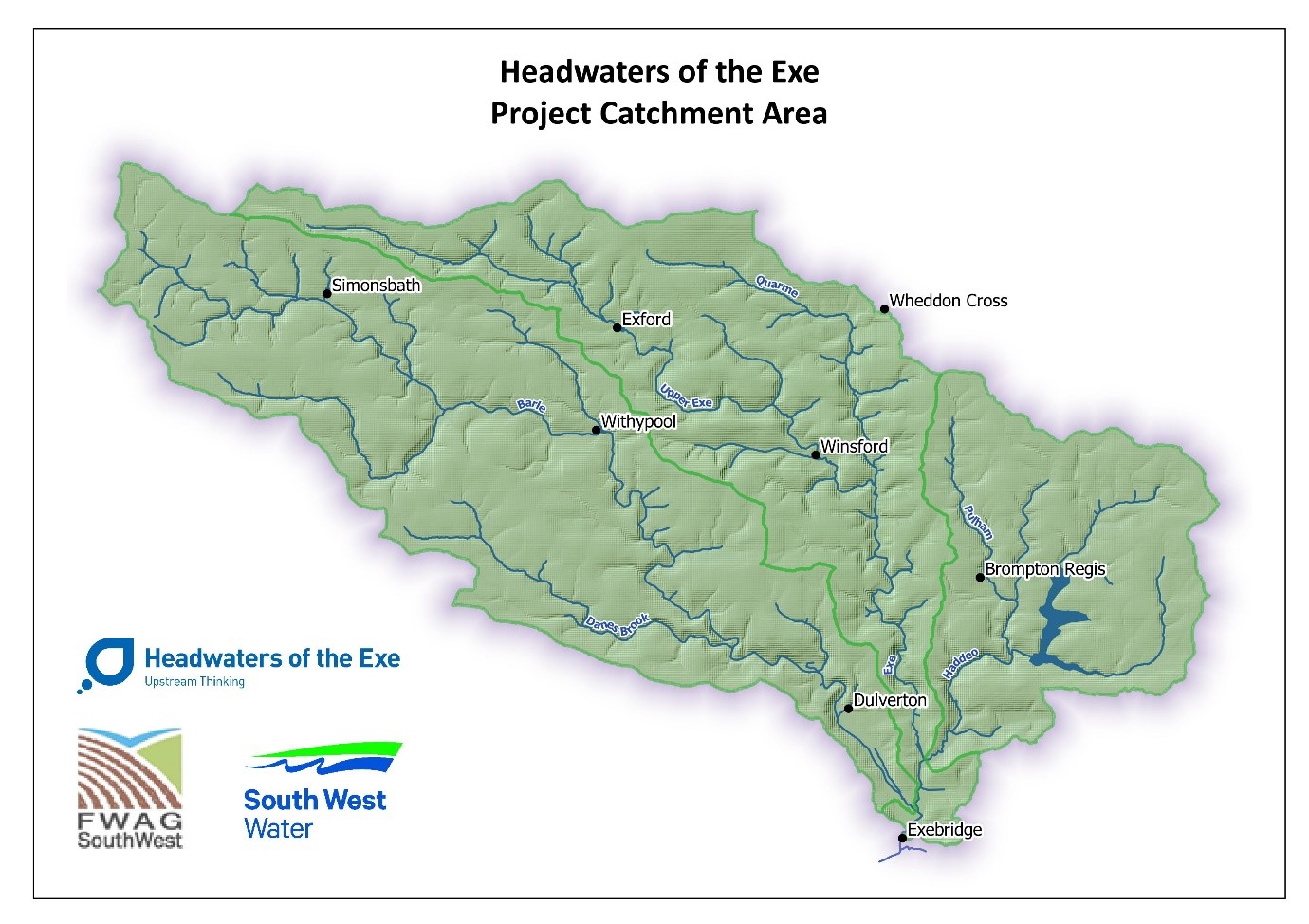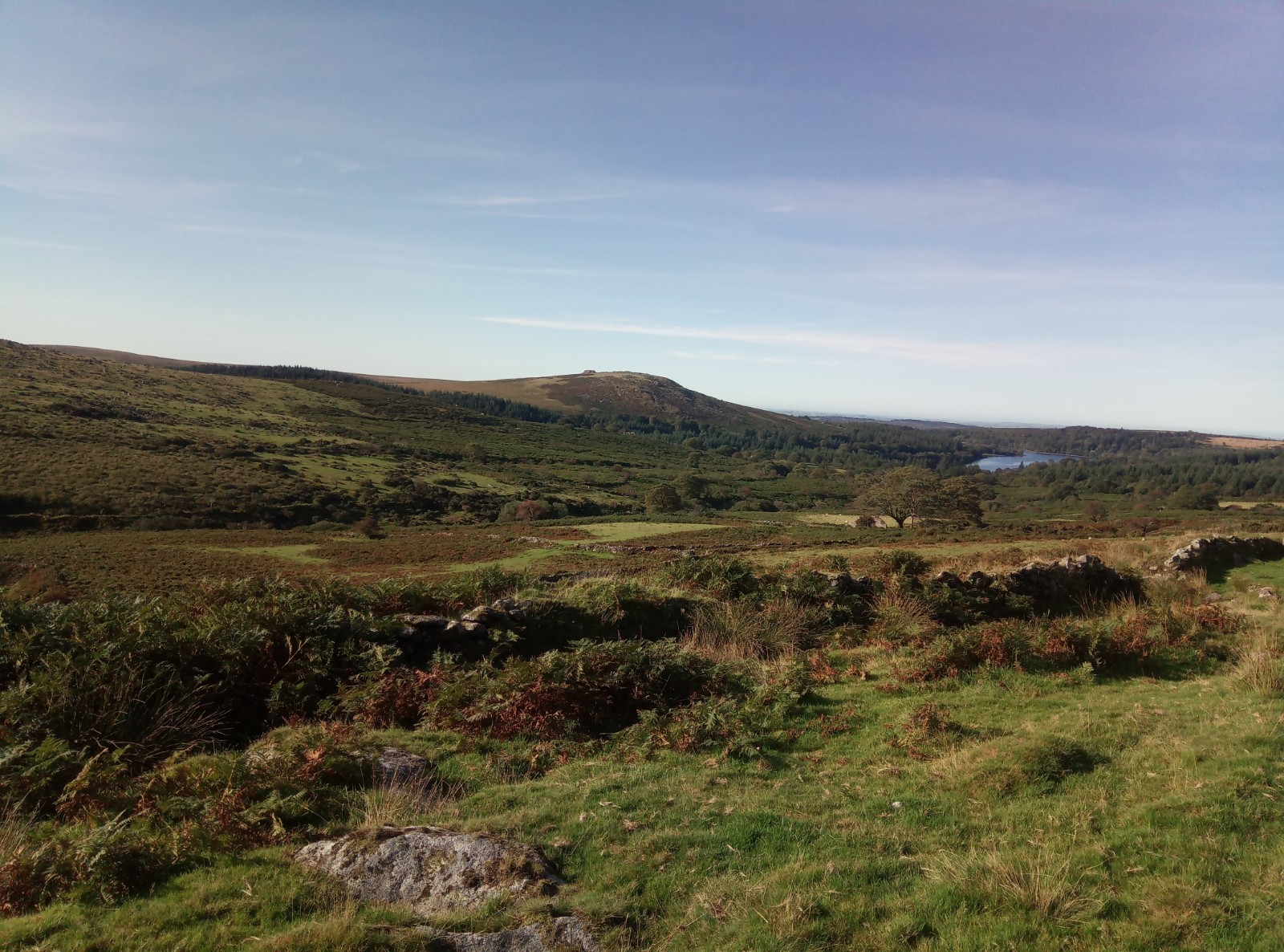Cornwall Wildlife Trust
Cornwall Wildlife Trust is the delivery partner for Upstream Thinking in the catchments of Drift Reservoir, Stithians Reservoir, the River Cober and College & Argal Reservoirs. These catchments collect drinking water for the towns and surrounding areas of Penzance, Newlyn, Helston, Falmouth and Penryn. The geography and climate of West Cornwall lends itself to pasture farming for beef and dairy herds, as well as areas of daffodil and vegetable cropping.
Since 2015 CWT has positively engaged with over 120 farmers across these catchments, finding solutions to benefit water quality, wildlife and farm business. Farmers are part-funding yard upgrades, like constructing roofs to stop manure washing into rivers. They are also managing their land in a way which is more sympathetic to the rivers and wildlife, such as leaving uncultivated strips which encourage wildflowers and pollinating insects.
As well as offering free advice on infrastructure and land management, CWT is proud of its committed teams of volunteers, who go out to each catchment every week to improve the environment with hands-on work like scything, hedging and clearing invasive species.
Find out more: https://www.cornwallwildlifetrust.org.uk/upstreamthinkingproject
and https://www.facebook.com/upstreamthinking
Get in touch: upstreamthinking@cornwallwildlifetrust.org.uk
Devon Wildlife Trust
Devon Wildlife Trust have been working with South West Water through Upstream Thinking since 2010. We work with landowners across the Tamar, Exe, Dart, Barnstaple Yeo, Otter, Roadford Lake, Wistlandpound and Fernworthy catchments.
Our main focus has been to use natural habitats to buffer watercourses, slow the flow of water, and trap sediments before they reach rivers and streams.
Since 2015 we’ve helped over 147 landowners access government grants to make environmental improvements, such as reducing fertilisers on grassland and cutting hedgerows less often. This has also helped them to improve their farmyards, allowing clean and dirty water to be separated better and preventing run-off into rivers.
Our advisors work throughout the catchments providing general farm practice advice which means that we ensure farm businesses are, to the best of our ability, supported at every level.
We also have use of the Working Wetlands machinery ring; allowing us to loan equipment such as soil aerators to help reduce compaction which is a common problem on many farms. All equipment is provided to landowners free of charge. We offer expert advice on wildlife habitat restoration and creation and can undertake associated conservation management such as the spreading of green hay, seed harvesting and spreading, and scrub control.

We may also be able to offer small grants as part of this programme, depending on the nature of what is needed to improve water quality or biodiversity on farm.
For more information or to get in touch with the team visit: www.devonwildlifetrust.org/working-wetlands
FWAG South West
The Headwaters of the Exe project (HotE) is working with farmers and land managers in the upper catchments of the River Exe to promote and support sustainable land management. As part of South West Water’s Upstream Thinking Programme, the third phase of the project (UST3) was relaunched in April 2020.
The project area comprises the upper Exe, Rivers Barle, Quarme, Pulham, Haddeo and their tributaries, as shown in the map below.

Between April 2015 and March 2020 (UST2), Headwaters of the Exe carried out 60 advisory visits to farmers and woodland owners, followed by Water and Environment Plans for each holding. Access to capital grants was facilitated and 22 events and demonstrations were held. The pesticide amnesty coordinated the removal of 192 litres & 5.5kg of pesticides and 2,500 litres of sulphuric acid silage additive from the catchment. Work to restore 6km of rights of way was completed, improving access on 17km of paths. The project also supported existing partnership projects, the Exmoor Knotweed Control Partnership and the River Barle Invasive Crayfish Project.
In April 2020, project management passed from Exmoor National Park Authority to FWAG South West. The two organisations will continue to work together closely, as well as with other organisations and groups including Exmoor Hill Farming Network, Exmoor Society, HotE Advisory Group, the Riverfly Partnership, Exmoor Mires Partnership and University of Exeter.
As before, project targets are to improve water quality through measures that will also provide benefits to maintaining and increasing the stock of natural capital within the catchment. Project themes include:
- Nutrient management
- Run-off and soil erosion
- Maintaining, restoring and connecting semi-natural habitats
- Pesticides and animal health products
- Invasive non-native species
- Natural Flood Management.
For further information about the project or to request a visit, please contact Anne May, Assistant Farm Conservation Adviser, via email anne.may@fwagsw.org.uk or phone 01823 660684. There is also more information about the project at www.fwagsw.org.uk/headwaters-of-the-exe
Exmoor Mires
The Exmoor Mires Partnership is an award winning partnership created to restore Peat upon Exmoor.
Generations of peat-cutting and the creation of drainage ditches has caused the mires to dry out, which reduces the water-holding capacity of the moors.
The focus of the Exmoor Mires Partnership is to block drainage ditches using sustainable methods, local materials and local contractors in order to 're-wet' the bog, enabling it to retain water and carbon. This is done by creating dams formed of Peat or wooden planks, topped with Peat. This then holds back the water that would flow along the ditches creating pools of water that slowly drain into the Peat in the area around the ditch.
There are many benefits for the Peat restoration such as:
Reducing Carbon in the atmosphere: Dried out Peat causes oxidation of exposed peat bogs which releases large quantities of carbon into the atmosphere. Re-wetted “healthy” Peat is a carbon sink so absorbs CO2 from the atmosphere and stores it.
Increasing biodiversity: The ditch blocking creates pools of water and re-wets the area around it allowing plants such as Sphagnum Moss to emerge. This in turn leads to animals calling the area their home, these range from reptiles like frogs and lizards, nesting upland wading birds and even small mammals like Otters.
Reducing flood risk: The blocking of the ditches reduces surface run off and so it takes longer for the rain water to flow through the moors before arriving at our villages and cities downstream. This allows the build up of water to be slowly released over time reducing the risk of flooding.
Reducing the cost of water: The healthy Peat acts as a natural filtration system reducing the sediment and dissolved organic carbon in the water making it easier to clean at water treatment works which in turn leads to cheaper water costs.
The Exmoor Mires Partnership is supported by local landowners, the Environment Agency, Natural England, English Heritage and the Exmoor National Park Authority. It also has help from local volunteers.
Westcountry Rivers Trust
Westcountry Rivers Trust (WRT) is continuing to work with Upstream Thinking on its third round. During this next phase, WRT will continue to work in partnership with landowners across six strategically important drinking water supply river catchments in the Westcountry: the Fowey, Tamar, Roadford, Exe, Dart and Otter catchments.
In addition to farmyard and infield infrastructure, this round has a stronger focus on maintaining, restoring, creating and connecting semi-natural habitats; in particular, targeting opportunities that will enhance biodiversity, increase the natural capital stock in the catchment, and generate other multiple benefits in terms of water quality, water storage, natural flood management, carbon storage, public enjoyment and invasive non-native species control.
On farm, investing in natural capital involves managing productive farmland to reduce negative impacts on water quality while seeking other multiple benefits for drinking water abstraction and the wider catchment environment. For example, slowing the flow of surface water run-off by installing ponds, wetland scrapes and better ditch management, putting in river or field buffers and planting woodland areas. These improvements can increase biodiversity by providing habitat for wildlife, improving raw water quality by reducing soil erosion and lowering overall flood risk, while generating an acceptable return on investment for the farm and improving its management. This commitment will also contribute to protection against wider environmental impacts such as climate change, agricultural intensification and deteriorating raw water. This in turn reduces drinking water treatment costs to SWW, which will benefit the consumers’ pocket too.
WRT Upstream Thinking farm advisers provide free and confidential advice to farmers and landowners across Devon and Cornwall. They take a holistic approach to determine how water interacts with pollutants and soil, at both a farm and landscape scale. We will discuss the farm business with the farmer and work out tailored solutions, having identified opportunities for investment on the farm. WRT also offers soil testing and advice for good soil husbandry. Grants for supporting improvements on farms are offered at 50% standard intervention rate to enable the farmer to deliver the works at an affordable cost. Farm advisers also provide support towards agri-environment applications for infrastructure and land management improvements, such as Countryside Stewardship. You can find out more about our work on Upstream Thinking 3 at https://wrt.org.uk/project/upstream-thinking-3/
South West Lakes
South West Lakes is working alongside Cornwall Wildlife Trust in the catchments of Stithians, Argal and College reservoirs, where our volunteer groups visit different sites around the catchments to undertake conservation and habitat management tasks to improve the sites for wildlife.
In April 2020, we started a two-year biodiversity project focused around Burrator reservoir on Dartmoor. The aim of this project was to identify and assess the condition of priority habitats and species on the land surrounding Burrator reservoir and provide site management recommendations.
From April 2022 to March 2025, we will be restoring 1,000 hectares of land around Burrator and Venford reservoirs to improve habitats for biodiversity and water quality, ensuring the catchments are resilient to climate change.


